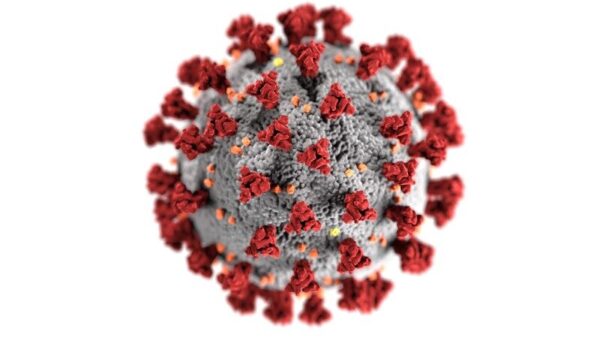Covid-19 and the Law
July 21, 2021

There are four areas where Covid-19 cases are appearing in the courts:
- Nursing Home related infections
One out of four coronavirus deaths in the United States are nursing home residents, according to a new analysis of federal data conducted by the Associated Press. Close to 1 in 10 of all COVID-19 cases are contracted by nursing home residents, as well.
Administrators at nursing homes and assisted living facilities owe a duty of care to their residents. This duty of care includes acting quickly and taking reasonable steps to prevent the spread of COVID-19, such as:
- Immediately isolating residents who become infected
- Continuous screening of both visitors and healthcare staff
- Closing off access to common rooms
- Following best practices for disinfecting common areas, equipment, and resident living areas
- Training, implementing and enforcing proper hand hygiene
- Using alcohol-based hand sanitizers and putting on PPE before caring for a resident
- Following additional protocols for containment
- Enforcing policies for caregivers; requiring them to go home, or stay home, if sick
Many nursing homes have patience with comorbidities such as heart disease, obesity, diabetes, high blood pressure and compromised immune systems. These comorbidities alone provide opportunities for more serious infection and death rates. Poor infection control, group meals and activities, and lack of adequate PPE all have contributed to the high death rate in these facilities. For many residents, schedule changes, staff protocols and regulations and regular screening were not implemented early enough to save lives.
Auditor general investigating COVID-19 deaths in Michigan nursing homes
https://news.yahoo.com/auditor-general-investigating-covid-19-220700577.html
Covid-19 made America’s long-term care crisis impossible to ignore
https://www.vox.com/policy-and-politics/22375360/nursing-home-care-in-home-covid-19
While activities that are implemented in nursing homes help prevent loneliness, they also offer prime opportunities for a disease such as COVID-19 to spread, especially when people are contagious before they even exhibit symptoms, and perhaps a majority of those who can spread it never actually develop symptoms. While most nursing homes halted or reconfigured each resident’s interactions with others upon learning of COVID-19’s dangers, for many residents, they were not protected soon enough or adequately.
- Employer related infection of employee or infection of household member
The U.S. Chamber of Commerce and other business lobbying groups are trying to get Congress to limit workers’ and customers’ ability to file COVID-19 related lawsuits. Businesses understandably want to insulate themselves from liability if their operations result in the infection and death of their employees or consumers.
The legislation being proposed by the U.S. Chamber of Commerce will, supposedly, only protect businesses that:
- Follow all disinfecting and cleaning protocols
- Implement social distancing as much as possible
- Mandate employee masks
- Vigilantly monitor employee health and require sick workers to stay at home
- Follow all state and federal recommendations and adhere to expert COVID-19 prevention advice
Businesses cannot claim ignorance when it comes to the risks of COVID-19. If a business does not take the necessary steps to maintain a clean, disinfected workplace or does not require customers or employees to wear masks and someone contracts COVID-19 and dies, the worker or customer’s family could have a strong case that the business’s negligence caused the death.
U.S. businesses with COVID-19 outbreaks are also facing an emerging legal threat from claims that workers brought COVID-19 home and infected relatives, which one risk analysis firm said could cost employers billions of dollars.
Corby Kuciemba and her husband Robert Kuciemba are going an extra step by blaming his employer, Victory Woodworks Inc., for spreading the illness into his household.
- Healthcare employee infection due to lack of adequate PPE
Healthcare workers rely on personal protective equipment to protect themselves and their patients from being infected and infecting others. But shortages are leaving doctors, nurses, and other frontline workers dangerously ill-equipped to care for COVID-19 patients, due to limited access to supplies such as gloves, medical masks, respirators, goggles, face shields, gowns, and aprons.
Many state laws rule out wrongful death lawsuits when employees die from work-related illnesses—even if they got COVID-19 because of inadequate PPE—but survivors may receive workers’ comp death benefits.
There are circumstances when an employee can sue an employer for a COVID-19 infection. If the business does not implement adequate, timely cleaning procedures and does not mandate masks and someone contracts COVID-19 and dies, the employee or customer’s family may have a strong case that the business’s negligence caused the death.
- Medical malpractice in the treatment of Covid-19 patients
There will be a lot of COVID-19 wrongful death cases filed in the near future – there already have been several. Nearly all of them are related to exposure at businesses.
- The brother of a Walmart grocery store employee in Illinois filed a COVID-19 wrongful death case.
- Arbor Terrace at Cascade, a nursing home in Georgia, is facing four separate wrongful death suits after the COVID-19 deaths of 16 residents.
There are also cases currently being litigated on failure to diagnose:
We are living through an extraordinary time. This pandemic has struck a severe blow to our health, the way we work, and our economy. The spread of COVID-19 has also created significant legal implications across the legal sector resulting in new legal issues and challenges.
Need a medical expert for your case? Contact us today.
